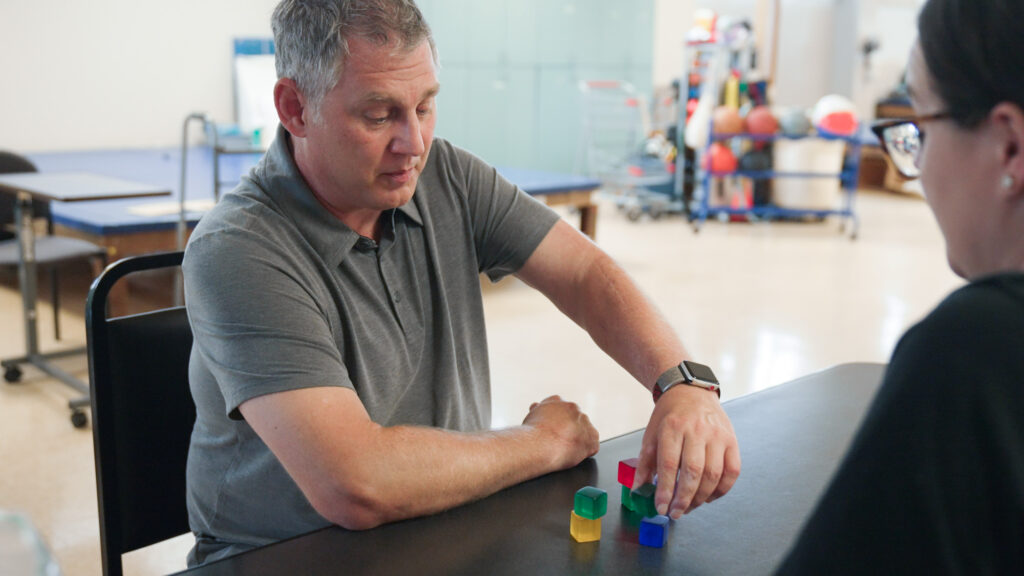
Health concerns can benefit from early detection. When it comes to an issue like a potential brain injury, it’s essential to keep an eye out for early signs to reduce the risk of complications.
A traumatic brain injury (TBI) occurs when there is blunt force trauma to the head. A TBI can occur from a wide range of trauma, including a car accident, falling on a hard surface or severe impact while playing sports.
A person should always be checked out by a healthcare professional following a head injury, as the severity of the impact may not be evident or visible. It’s not uncommon for a person to brush it off as “no big deal” after the event. Perhaps they seem fine at the moment, only to have symptoms develop later and worsen with time. It’s crucial to know early signs of brain injury that may require a hospital trip.
Identifying 5 traumatic brain injury signs
Brain injuries are a leading cause of death and disability, as well as the most common cause of seizure disorders. While the severity of symptoms can vary, neglecting to seek treatment for a traumatic brain injury can increase the risk of developing complications such as cognitive impairments and fluid buildup in the brain. It can even lead to mental health issues, such as depression and suicidal thoughts.
The risk of potential complications can be reduced by learning how to identify early signs of brain injury in yourself or a loved one, including:
- Persistent or worsening headache — Any hit on the head can lead to a headache, but a headache that isn’t improving with time or that is worsening in pain can be a sign of a traumatic brain injury. If a headache continues for several days or the pain has become more severe, it may be an early sign of a concussion. Do regular check-ins every few hours to determine the state and progression of the headache.
- Coordination issues — A TBI can make it difficult to walk in a regular manner or pattern, sometimes partnered with dizziness or vertigo. Be sure to monitor movement and gait (the position of the body as you walk). If you or your loved one is having trouble walking in a straight line or staying balanced, it could be a sign that there’s been damage to the vestibular system. This sensory system is located in the inner ear and is responsible for balance and spatial orientation.
- Blurred vision — When the head gets suddenly jolted by a traumatic blow, the result can be a communicational disconnect between the brain and the eyes. This can lead to vision issues, such as blurred vision. It can be tested by following a moving finger with just the eyes or asking the person to identify something that they see. Double vision can also occur alongside blurred vision.
- Slurred speech — There are several parts of the brain that are responsible for motor functions that can be impacted by trauma, such as the cerebellum and brain stem. When these are affected, it can cause weakness in the tongue, lips and jaw muscles. This can lead to dysarthria, or slurred speech. Identifying this symptom tends to be pretty apparent, as you’ll have trouble understanding what they’re saying. If you’re the one with the TBI, you may be told that you’re lacking pronunciation, talking slowly or mumbling.
- Nausea — One of the most common early signs of a TBI is feeling nauseous or vomiting. This can stem from the body having a difficult time regulating the digestive system due to the nerves being disrupted in the brain. It could also sometimes be a stress response to the trauma. If there isn’t a physical action of vomiting, the persistence of the nausea should still be monitored.
Even if there are mild symptoms of TBI that may disappear with time, any early symptoms should be evaluated by a healthcare provider. It’s also possible for symptoms to take a few days to develop after the trauma occurs.
Ability KC can help following inpatient treatment for traumatic brain injury
If you or a loved one has been admitted to the hospital for a traumatic brain injury, proper follow-up care with outpatient medical rehabilitation can make a significant difference in minimizing the severity of any long-term issues.
At Ability KC, we provide outpatient medical rehabilitation services that can help people with brain injuries improve their physical, cognitive and behavioral challenges. Individualized treatment plans may include:
- Medical concern monitoring
- Occupational therapy
- Speech therapy
- Physical therapy
- Recreational therapy
- Psychology services
Ability KC is a designated Comprehensive Outpatient Rehabilitation Facility (CORF) with a Commission on Accreditation of Rehabilitation Facilities (CARF) accreditation. Contact our team today for more information or to schedule an initial appointment.